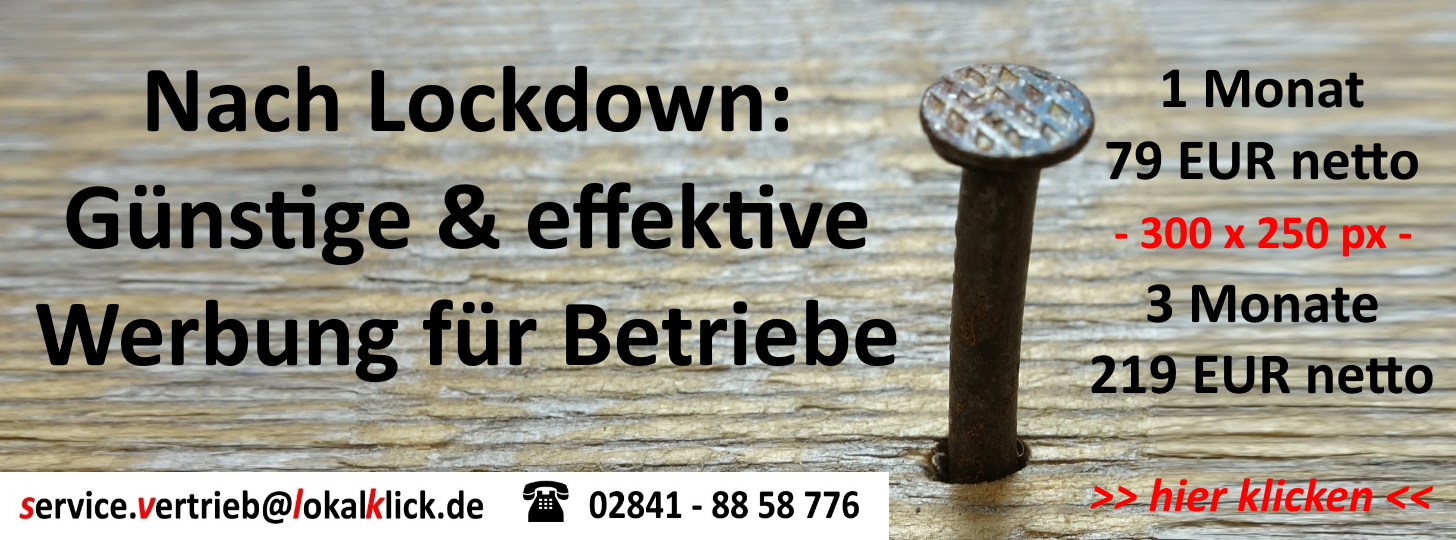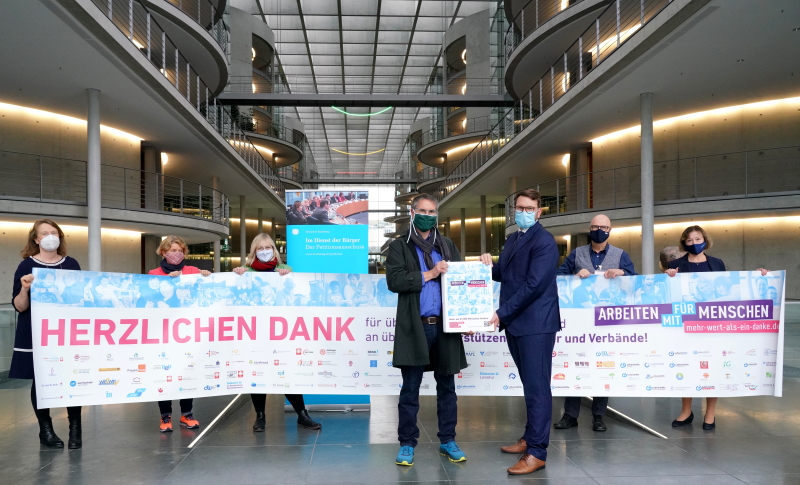–

–
Neuss / Kaarst / Grevenbroich / Korschenbroich / Mönchengladbach / Viersen / Krefeld. For better working conditions in the social economy
From Neuss – the headquarters of the St. Augustinus Group with facilities in the Rhine district of Neuss, Krefeld, Mönchengladbach and in the district of Viersen – to the federal capital: The St. Augustinus Group’s assistance for the disabled is one of 120 social enterprises behind the “More worth than one Thank you – working for and with people ”. As part of a petition for better working conditions in the social economy, Managing Director Wilfried Gaul-Canjé and several colleagues have now handed over 53,000 signatures to the Chairman of the Petitions Committee of the German Bundestag, Marian Wendt.
“The employees who devotedly care for people with disabilities and mental impairments should not be fobbed off with a thank you”, demands Wilfried Gaul-Canjé. The corona pandemic in particular has relentlessly revealed that the framework conditions for employees must improve. This is exemplified by the corona premium, which many employees in the federal and state levels receive after the collective bargaining agreement, but only a few employees in the social economy.
More than 120 foundations, associations, institutions and services from across the whole of voluntary welfare had come together to form an initiative nationwide to address three central demands for employees in social enterprises to politics and society: better working conditions, fair wages and more appreciation. “We see that assistance for the disabled is not in the focus of politics at all. It was important for us to make it clear here in Berlin that enormous things are also being done in social psychiatry and assistance for the disabled, ”said Gaul-Canjé.
The petition calls for collective bargaining to be enforced in the entire social economy, so that there is more competition for quality and less wage dumping. Service fees and care rates would have to be increased significantly so that fair wages and professional development – for example in the important topic of digitization – are affordable. Better training and further education offers are intended to improve the attractiveness of professions in the social and care industry, especially among the younger generation, in order to be able to reduce the existing shortage of skilled workers.
“What made me happy in Berlin”, Gaul-Canjé sums up after handing over the signatures and the petition, “was the constructive atmosphere in the German Bundestag. Our participation was expressly desired. The politicians wanted to know where the aid for the disabled stands in the Federal Republic of Germany. ”Now, the interest must also be followed by corresponding agreements, says the managing director of the aid for the disabled of the St. Augustinus Group.
–


